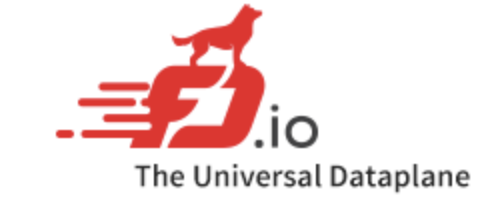
Release marks significant progression in network stack, host stack, and management capabilities which further speed packet processing and improve operational visibility
SAN FRANCISCO – September 18, 2019 – FD.io (“Fido”) – an open source project within the Linux Foundation’s LF Networking (LFN), specifically focused on becoming the world’s fastest packet processing data plane for secure network infrastructure applications – today announced the availability of software release v19.08. The release provides significant additions and enhancements to the Vector Packet Processing’s (VPP) network stack, host stack, and management infrastructure – furthering its breakthrough packet processing performance and strengthening ease of deployment and manageability.
VPP’s Network Stack (VNET) provides a platform-independent subgraph for processing Layer 2 and 3 networking traffic. Release 19.08 adds the following to the network stack – speeding rule processing, cryptography, and overall network interface robustness:
- L3 Cross Connect – which sends all traffic received on the input interface to requested path(s). This approach is considerably more memory efficient than using a separate IP table for each input interface, and is much faster than an ACL-based forwarding match- all rule.
- Updated cryptography infrastructure for modularity and performance scaling accommodating both hardware (including Intel® QuickAssist Technology) and software instruction acceleration (including the integration of Intel® Multi-buffer Crypto for IPSec library and native VPP crypto_ia32 library) supporting a full set of crypto algorithms
- Additional network interface coverage, configuration, performance and compliance achievements:
- Optimized drivers (VPP native interface: Intel AVF (Intel Fortville and Columbiaville); Mellanox RDMA/iVerb (Connect-X 4 and Connect-X 5); and VMXNet3) – providing significant performance improvement
- DPDK 19.05
- NUMA-aware interface bonding, local interface prioritization – which builds upon the NUMA-aware memory enhancements added in FD.io VPP 19.01
- Link Aggregation Control Protocol (LACP) bonding
- Experimental support for Generic Segmentation Offload (GSO)
- Tunnel/Overlay advances including IETF compliant Segment Routing (SRv6 and MPLS SR) and VXLAN-GPE performance enhancements
FD.io VPP’s host stack builds on top of the L2/L3 network stack – adding transport, session, and application-layer protocol processing nodes. Release v19.08 adds the following:
- High-performance Layer 4 support for UDP, TCP, TLS and QUIC
- Quick UDP Internet Connections (QUIC) – which reduces connection and transport latency by moving endpoint congestion control algorithms out of kernel space and into user space
- TCP congestion control enhancements – the addition of undo recovery, start tx, loss signal, and delivery rate estimation (the later which is useful to future planned congestion control algorithms like Bottleneck Bandwidth and Round-trip propagation time (BBR)
Many of the above features contribute directly to ongoing FD.io VPP performance gains. Detailed performance test results associated with Release v19.08 can be viewed in FD.io CSIT-1908 report [Throughput] and [TCP/IP] graphs and data.
Complementing a rich set of network and host stack improvements and additions, release 19.08 also adds new management capabilities that are key to enterprise and carrier class deployment efficacy, including:
- API support for Python 3 programming
- IGMP and IP traces / tracing added for improved debugging
- VPP counter stats with zero-overhead counter read semantics now exposed in a shared memory segment and API
- Worker thread level stat (granularity includes cycle-per-node and vector size per worker thread) in support of detailed performance introspection
Industry uptake of FD.io continues to expand through vendor solution productization and commercial network deployments:
- Cisco Ultra Packet Core Solutions
- Cisco® Virtual Topology System (VTS)
- Cisco XRv 9000 IOS XR Based vRouter / vBNG Solution
- Huachentel Virtualized CPE Solutions
- Netgate TNSR Router, VPN and Firewall Solutions
- Smart Access Gateway for Alibaba Cloud network products
- Yahoo Japan deployment of software-based, cloud-native scalable, load balancing
“Many have worked diligently for several years now to progress FD.io to the point of commercial viability,” said Jim Thompson, Netgate CTO. “Now that we are seeing mainstream network deployments, the project takes on a new level of importance. Release v19.08 is a significant stepping stone on that path.”
To date, FD.io has over 15,000 commits from roughly 400 contributors working through 90 organizations – including network operators, service providers, equipment and software providers, chip vendors, integrators, and researchers – all collaborating to innovate software-based packet processing. FD.io community projects address not only VPP technology, but a diverse set of requirements and usability needs across a variety of deployment environments.
Visit FD.io and other LF Networking projects at Open Network Summit Europe, September 23-25, 2019 in Antwerp, Belgium. Registration remains open, with Day and Hall Pass options starting at $275 US.
For more information or details on how to participate in FD.io, please visit: https://fd.io. Details on LF Networking are available here: www.lfnetworking.org.
About The Linux Foundation
The Linux Foundation is the organization of choice for the world’s top developers and companies to build ecosystems that accelerate open technology development and industry adoption. Together with the worldwide open source community, it is solving the hardest technology problems by creating the largest shared technology investment in history. Founded in 2000, The Linux Foundation today provides tools, training and events to scale any open source project, which together deliver an economic impact not achievable by any one company. More information can be found at www.linuxfoundation.org.
The Linux Foundation has registered trademarks and uses trademarks. For a list of trademarks of The Linux Foundation, please see our trademark usage page: https://www.linuxfoundation.org/trademark-usage. Linux is a registered trademark of Linus Torvalds.
###
